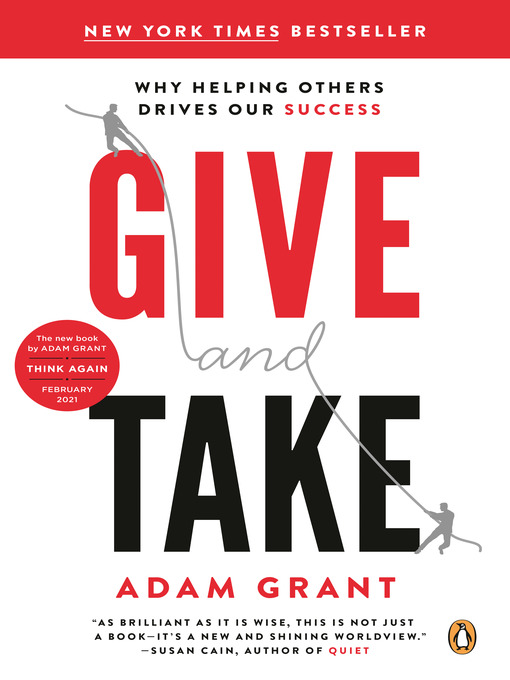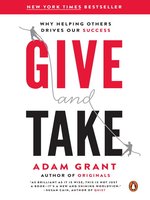From the book
1
Good Returns
The Dangers and Rewards of Giving More Than You Get The principle of give and take; that is diplomacy—give one and take ten.
—Mark Twain, author and humorist
On a sunny Saturday afternoon in Silicon Valley, two proud fathers stood on the sidelines of a soccer field. They were watching their young daughters play together, and it was only a matter of time before they struck up a conversation about work. The taller of the two men was Danny Shader, a serial entrepreneur who had spent time at Netscape, Motorola, and Amazon. Intense, dark-haired, and capable of talking about business forever, Shader was in his late thirties by the time he launched his first company, and he liked to call himself the “old man of the Internet.” He loved building companies, and he was just getting his fourth start-up off the ground.
Shader had instantly taken a liking to the other father, a man named David Hornik who invests in companies for a living. At 5'4", with dark hair, glasses, and a goatee, Hornik is a man of eclectic interests: he collects Alice in Wonderland books, and in college he created his own major in computer music. He went on to earn a master’s in criminology and a law degree, and after burning the midnight oil at a law firm, he accepted a job offer to join a venture capital firm, where he spent the next decade listening to pitches from entrepreneurs and deciding whether or not to fund them.
During a break between soccer games, Shader turned to Hornik and said, “I’m working on something—do you want to see a pitch?” Hornik specialized in Internet companies, so he seemed like an ideal investor to Shader. The interest was mutual. Most people who pitch ideas are first-time entrepreneurs, with no track record of success. In contrast, Shader was a blue-chip entrepreneur who had hit the jackpot not once, but twice. In 1999, his first start-up, Accept.com, was acquired by Amazon for $175 million. In 2007, his next company, Good Technology, was acquired by Motorola for $500 million. Given Shader’s history, Hornik was eager to hear what he was up to next.
A few days after the soccer game, Shader drove to Hornik’s office and pitched his newest idea. Nearly a quarter of Americans have trouble making online purchases because they don’t have a bank account or credit card, and Shader was proposing an innovative solution to this problem. Hornik was one of the first venture capitalists to hear the pitch, and right off the bat, he loved it. Within a week, he put Shader in front of his partners and offered him a term sheet: he wanted to fund Shader’s company.
Although Hornik had moved fast, Shader was in a strong position. Given Shader’s reputation, and the quality of his idea, Hornik knew plenty of investors would be clamoring to work with Shader. “You’re rarely the only investor giving an entrepreneur a term sheet,” Hornik explains. “You’re competing with the best venture capital firms in the country, and trying to convince the entrepreneur to take your money instead of theirs.” The best way for Hornik to land the investment was to set a deadline for Shader to make his decision. If Hornik made a compelling offer with a short fuse, Shader might sign it before he had the chance to pitch to other investors. This is what many venture capitalists do to stack the odds in their favor.
But Hornik didn’t give Shader a deadline. In fact, he practically invited Shader to shop his offer around to other investors. Hornik believed that entrepreneurs need time to evaluate their options, so as a matter of principle, he...








